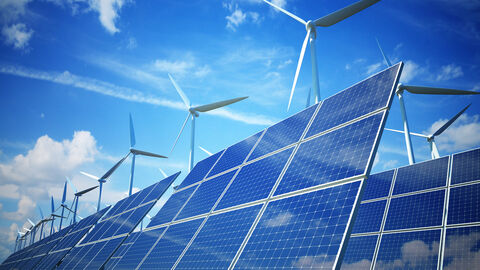About a quarter of the world's population have no or insufficient access to commercial energy sources. Global warming, air pollution and energy efficiency are the topics of this century. Renewable energies are available, competitive and ideally suited for widespread application in developing countries. The promotion of renewable energies makes an important developmental and humanitarian contribution to sustainably improving living conditions in these countries and promoting economic development.
After completing the practice-oriented advanced training, our participants can assess the qualitative and quantitative usability of regenerative forms of energy and analyse geographical, economic, ecological and political factors of influence on the basis of selected examples. The participants will be familiarized with the basic idea of the Renewable Energy Sources Act and will then understand the broad use of photovoltaics in Germany. In order to achieve action competence, physical and technical cause-effect relationships in power generation with solar cells are investigated both with teaching aids and industrial media such as solar modules and inverters. Photovoltaic plants are planned with professional software, simulated, then assembled and put into operation. Electrical protective measures and lightning protection round off the topic.
For the use of electrical energy, immediate consumption or feeding into the grid is an option. Alternatively, with the aid of batteries as buffer storage, a self-sufficient island network can be set up, e.g. to supply previously non-electrified places in the participants' home countries.
Contents:
- Renewable forms of energy
- Energy conversion systems
- Electrical engineering, power electronics and protective measures
- Photovoltaic systems
- Wind power systems
- Hydropower systems
- Technology of island networks
